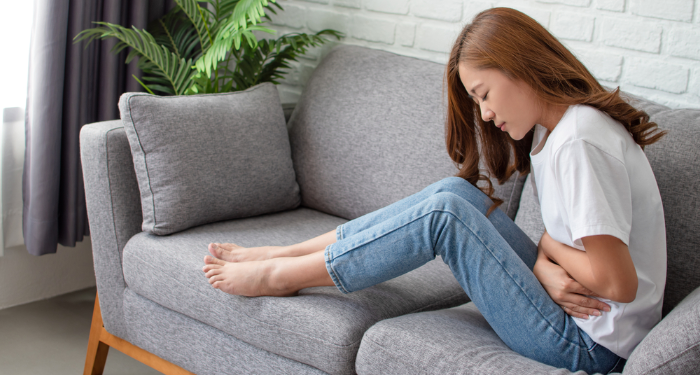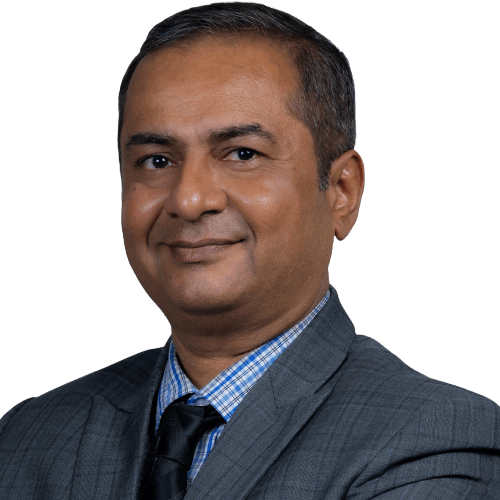Written By: Dr. Sreekantha Reddy Yerragudi
Dr. Sreekantha Reddy Yerragudi is a gastroenterologist and hepatologist having secured his MBBS, MD and DM all from the NTR University of Health Sciences Andhra Pradesh. India. He has worked at The Apollo Specialty hospitals , India before this and is specialized in the treatment of gastroenterology, liver and pancreatic diseases and is a specialist in the treatment of liver and pancreatic diseases.
Updated On:December 25, 2023
Read more.

What Are Gallbladder Stones?
The gallbladder is a small, pear-shaped sac on the right side of the body, right underneath the liver. It’s primary function is to store, concentrate & ejection of bile into the intestines, a green-yellow liquid produced in the liver that assists in digestion of lipids such as fatty acids.
Gallbladder stones, commonly referred to as gallstones & medically termed as Cholelithiasis, are hardened stones of bile that form in the gallbladder or anywhere in the biliary tract. They vary in size, ranging from the size of a grain of salt to the size of a golf ball. They are mostly made up of cholesterol.
Gallbladder Stone Symptoms
Gallstones are very common & presence of gallstones in the gallbladder often present no symptoms. Gallstones that result in no pain or any other symptom are termed as ‘silent gallstones’ & can only be diagnosed through radiological imaging of abdomen(ultrasonography/CTscan/MRI) or during a surgical procedure in the abdomen.
However, when gallstones start obstructing the passage of bile out of the gallbladder, symptoms start to appear, including:
- Biliary colic (pain in the upper to middle section of the abdomen especially after consumption of heavy fatty meal) especially during night
- Shoulder pain
- Nausea & Vomiting
- Heartburn
- Gas
- Indigestion
- Fever with chills
Gall stone pain typically persists for a certain amount of time, from a few minutes to a few hours, but eventually subsides.
When To See A Doctor For Gallstone Disease
Formation of larger gallstones may block the gallbladder entirely, resulting in severe inflammation and, in some cases, infection as well. If you experience the following symptoms, visit your doctor immediately:
- Right upper abdominal pain radiating to back or shoulder that inhibits the ability to sit straight
- High fever accompanied by chills
- A yellow tinge in the eyes or skin
- Dark, concentrated urine
- Light-colored stool
Types of Gallstones
There are typically two types of Gallstones:
-
Cholesterol gallstones are the most prevalent type of gallstone & as the name suggests, it is primarily made of solidified, undissolved cholesterol.
-
Pigment gallstones are primarily composed of a dark brown chemical called bilirubin. Bilirubin is a by-product of the breakdown of red blood cells & is stored in the gallbladder as a component of bile.
What Causes Gallstones?
Gallstones are caused by a chemical imbalance in the bile. The causes of gallstones vary depending on the type of gallstone that has occurred.
-
Cholesterol gallstones are caused by high cholesterol excretion from the liver, which is a result of a high cholesterol diet. The bile fails to dissolve all of the cholesterol & the remaining crystalizes & turns into stones.
-
Pigment gallstones are caused by excessive secretion of bilirubin. There are several factors that can result in an increased production & excretion of bilirubin by the liver such as biliary tract infections, blood disorders, recurrent malarial infections etc. This excess supply can result in the formation of pigment gallstones.
Apart from their individual causes, both types of gallstones mentioned here can also form when the gallbladder fails to empty itself completely, resulting in an increase in cholesterol & bilirubin concentration.
Gallstone Risk Factors
There are several types of gallstone risk factors that are related to existing health conditions, lifestyle, & genetic or biological differences, including:
-
Lifestyle Factors
-
Being overweight and/or obese increases chances of gallstone formation
-
A high cholesterol or fatty diet increases risk of cholesterol gallstones
-
A diet low in fiber increases risk of gallstones
-
Losing weight quickly can increase chances of developing gallstones
-
-
Genetic/ Biological Factors
-
Women are more prone to developing gallstones
-
Having a family history of gallstones increases your risk of developing gallstones
-
Older people are at a higher risk of developing gallstones
-
-
Health/ Medical Factors: People with the following are also at a higher risk of developing gallstones:
-
Diabetes mellitus
-
Liver diseases such as liver cirrhosis
-
Blood disorders such as hemolytic anemias( sickle cell disease, thalassemia etc.,)
-
Taking estrogen-heavy medications such as oral contraceptives
-
Intestinal diseases such as Crohn’s disease
-
Pregnancy & Lactation
-
Complications Of Gallstones
If left untreated despite the appearance of mild symptoms, gallstone disease can result in the following complications:
- Blockage of the bile duct, leading to extreme pain, infection of gall bladder, bile ducts, liver, and, in some cases, jaundice.
- Blockage of pancreatic duct, which connects the pancreas to the bile duct, & is the main passageway for pancreatic digestive juices, can take place as well. This can result in inflammation of the pancreas which requires immediate hospitalization.
- The gallbladder can become inflamed (acute cholecystitis) if the gallbladder stones block the neck of the gallbladder. This can cause severe abdominal pain & fever.
- People who have a history of gallstone disease are at a higher risk of gallbladder cancer.
Gallstones Treatment Options
While smaller gallstones pass through the digestive tract & are expelled from the body during bowel movements, larger gallbladder stones that cause frequent gallstone pain & cause other symptoms to manifest in a patient, warrant proactive treatment.
Gallbladder Stone Removal
There are several medical treatment options that focus on gallbladder stone removal from the biliary tract. These include:
-
Dissolution: Doctors may use Ursodeoxycholic acid to dissolve cholesterol gallstones. This treatment may take upto 24 hours to work. It is not effective as gallstone surgery.
-
ERCP: Patients in whom Gall stones block the bile duct & pancreatic duct causing complications are treated using an endoscope to reach the bile duct. This procedure is known as Endoscopic Retrograde Cholangio-pancreatography (ERCP) & is normally done under sedation.
-
Lithotripsy: In lithotripsy, ultrasonic shock waves are directed towards gallstones to break them down, easing their passage through the bile duct. This is not effective & associated with complications
Gallbladder Removal
In cases where the gallbladder has become inflamed, doctors decide to remove the gallbladder altogether through either of the following, depending on the severity of gallbladder inflammation:
-
Laparoscopic Cholecystectomy: A small incision is made in your belly & a laparoscope, which holds medical instruments, a light, & a camera, is passed through. The gallbladder is then removed through another incision. It’s the best treatment option.
How long does laparoscopic surgery take?
1 to 2 hours. The patient is usually discharged in one day.
-
Open Cholecystectomy: In cases where the gallbladder is highly inflamed & associated with severe complications, an open surgery is carried out. A larger incision is made this time & the recovery time for patients that undergo an open cholecystectomy is substantially longer.
In the aftermath of gallbladder removal patients may experience diarrhea/abdominal bloating for few days
Foods you can eat after Gallbladder Removal
- High-fiber foods
- Low-fat foods
- Avoid fried & creamy food items
- Avoid full-fat dairy foods
Gallstone Prevention
Gallstones can be prevented by making the following lifestyle changes:
- Maintaining a high-fiber, low-fat, low-cholesterol diet
- Maintaining a healthy weight
- Reducing weight gradually
- Regular exercise
- Females should avoid hormonal contraceptives unless needed
- Taking nutritional supplements
To understand more about the symptoms, causes, treatment & prevention of gallbladder stones get in touch with us.
Meet our doctors from the Gastroenterology department
|
||||||||
|
||||||||
|
||||||||
|
||||||||
|
||||||||
|
||||||||
|
||||||||
|
||||||||
|
||||||||
|
||||||||
|
||||||||
|
||||||||
|
||||||||
|
||||||||
|
||||||||
|
||||||||
|
||||||||
|
||||||||
|
||||||||
|
||||||||
|
||||||||
Similar Posts
teleMEDCARE App
Download teleMEDCARE app from Google Play or App Store to connect immediately to Medcare doctors at a click of a button and without an appointment.

Home Services
We offer our patients a broad range of home health care services in the comfort of their own homes. Book an appointment for lab tests, vaccinations, nurses and physiotherapists.

Chronic Care
Know more about our Chronic Care Management Programme in partnership with Damana Saicohealth.

teleMEDCARE App mobile
Download teleMEDCARE app from Google Play or App Store to connect immediately to Medcare doctors at a click of a button and without an appointment.

Home Services
We offer our patients a broad range of home health care services in the comfort of their own homes. Book an appointment for lab tests, vaccinations, nurses and physiotherapists.

Spotii
We have partnered with Spotii to offer a more flexible way to pay - Pay over time for your purchase. No interest, no cost & no catch.




























